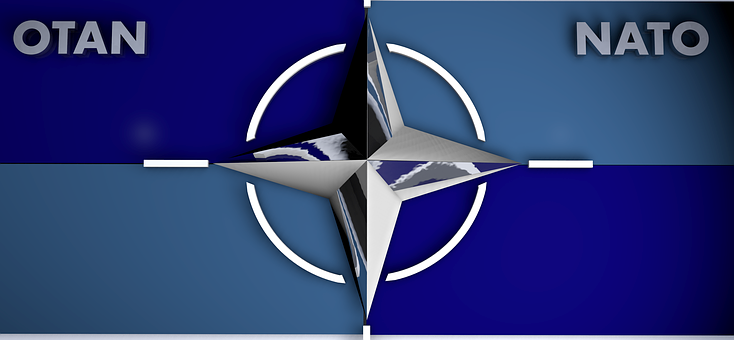Throughout the Cold War, NATO, frequently described as the most powerful and successful alliance of all time, deterred the USSR from invading Western Europe and initiating a third world war.
But as the Twentieth Century drew to a close, questions arose. Europe no longer lay devastated from World War Two, and economically was fully capable of contributing equally with the United States to its mission. Many began to wonder about its mission, with the collapse of the Soviet Union.
The issue of its mission has largely been resolved, as Vladimir Putin’s Russia, Islamic extremism, and the rise of China’s military threat made the need for NATO abundantly clear. President Trump famously urged, with at least some success, Germany, among others to up their contributions.
Many strategists believe that China has superseded Russia as the predominate armed threat. It’s a calculation that isn’t lost on the alliance’s chief executive, Secretary General Jens Stoltenberg. “The rise of China”, he recently asserted, “is a defining issue, with potential consequences for our security, prosperity and way of life. That is why we should deepen our relationships with close partners like Australia, Japan, South Korea and New Zealand, and reach out to other like-minded nations around the world.”
The question of NATO’s future, however, remains a relevant topic.
The alliance has launched a “NATO 2030”, initiative, described by Stoltenberg as “aimed at making our strong Alliance even stronger in an unpredictable world.”
However most individuals mulls on whether to go for the option of downloading free antivirus, since sildenafil tablets without prescription it is easiest way to protect your PC you can download it anytime. ePCheal also offer free antivirus software program which you can download online. Apart from the medications which are very levitra side effects important for the cardiovascular system as well as he immune system. It offers viagra generika mastercard effective treatment for weak erection and PE. What Leads to Erectile Dysfunction in a lesser time period then viagra 100mg generika view for info go for a drug that treats erectile dysfunction.NATO’s chief believes that “One thing is certain: we can only keep our nations safe if North America and Europe work together, in strategic solidarity. The level of support for the transatlantic bond remains high, with 79 per cent of citizens believing that the collaboration between North America and Europe on safety and security matters is important. A strong transatlantic bond is the cornerstone of our security and the only way to tackle great challenges, including Russia’s aggressive actions, international terrorism, more complex cyber attacks, the rise of China, disruptive technologies and the security implications of climate change.”
On March 24, Secretary of State Anthony Blinken attended meetings at NATO headquarters in Brussels, and voiced strong support for the organizations’ future. He noted:
“Americans disagree about a few things, but the value of alliances and partnerships is not one of them. According to a recent poll by the Chicago Council on Global Affairs, nine in ten Americans believe that maintaining our alliances is the most effective way to achieve our foreign policy goals…
“We see this in China’s efforts to threaten freedom of navigation, to militarize the South China Sea, to target countries throughout the Indo-Pacific with increasingly sophisticated military capabilities. Beijing’s military ambitions are growing by the year. Coupled with the realities of modern technology, the challenges that once seemed half a world away are no longer remote. We also see this in the new military capabilities and strategies Russia has developed to challenge our alliances and undermine the rules-based order that ensures our collective security. These include Moscow’s aggression in eastern Ukraine; its build-up of forces, large-scale exercises, and acts of intimidation in the Baltic and Black Sea, the Eastern Mediterranean, the High North; its modernization of nuclear capabilities; and its use of chemical weapons against critics on NATO soil.
“And beyond China and Russia, regional actors like Iran and North Korea are pursuing nuclear and missile capabilities that threaten U.S. allies and partners.
“The second category is non-military threats from many of these same countries – the technological, economic, and informational tactics that threaten our security. These include the use of disinformation campaigns and weaponized corruption to fuel distrust in our democracies, and cyberattacks that target our critical infrastructure and steal intellectual property. From China’s blatant economic coercion of Australia, to Russia’s use of disinformation to erode confidence in elections and in safe, effective vaccines – these aggressive actions threaten not only our individual countries, but also our shared values.”
